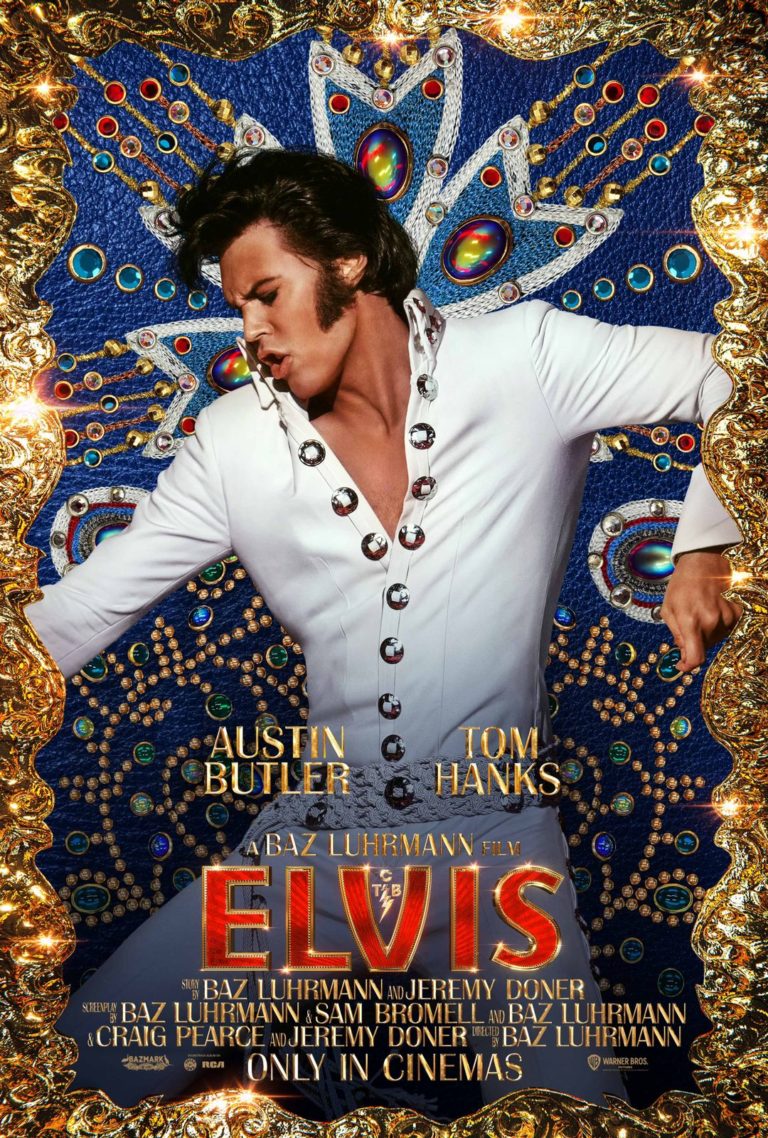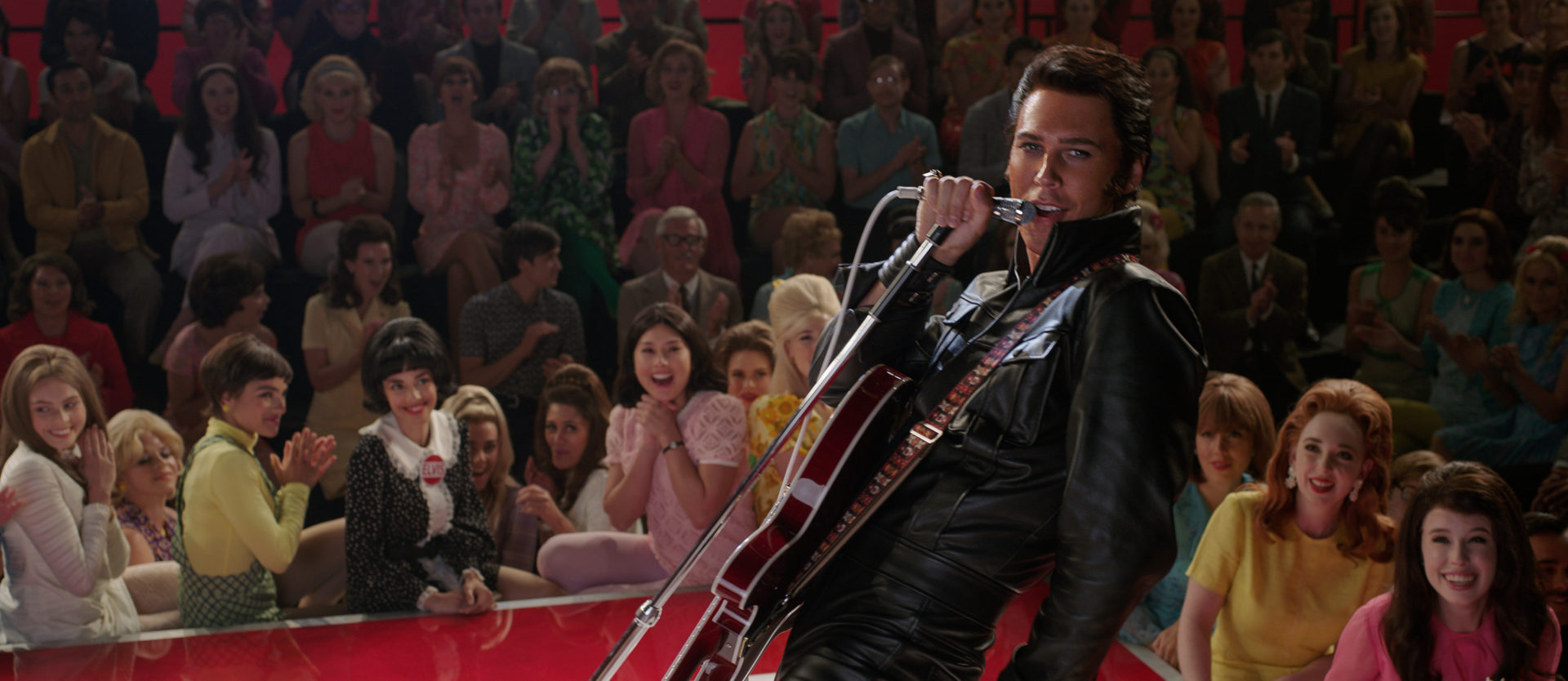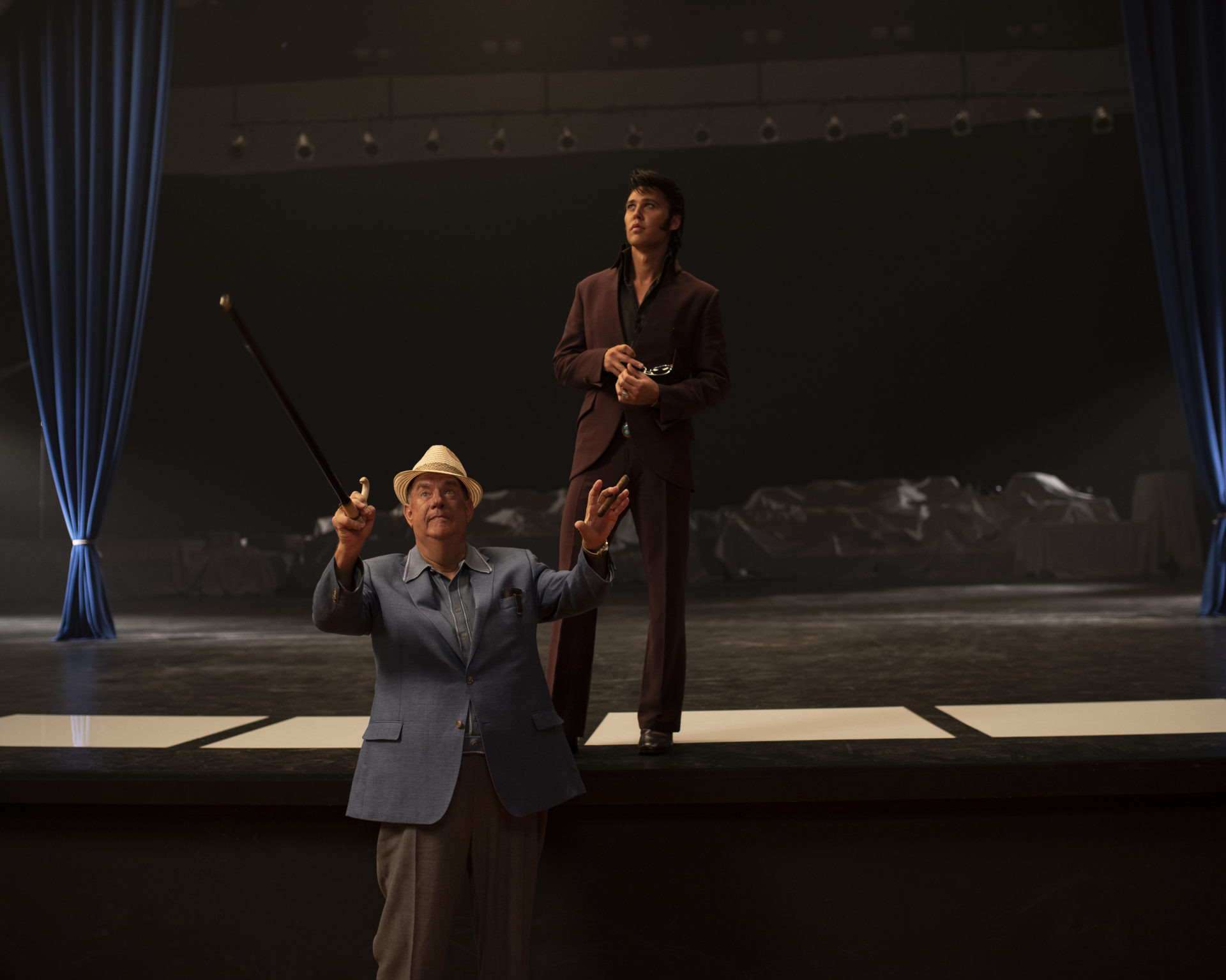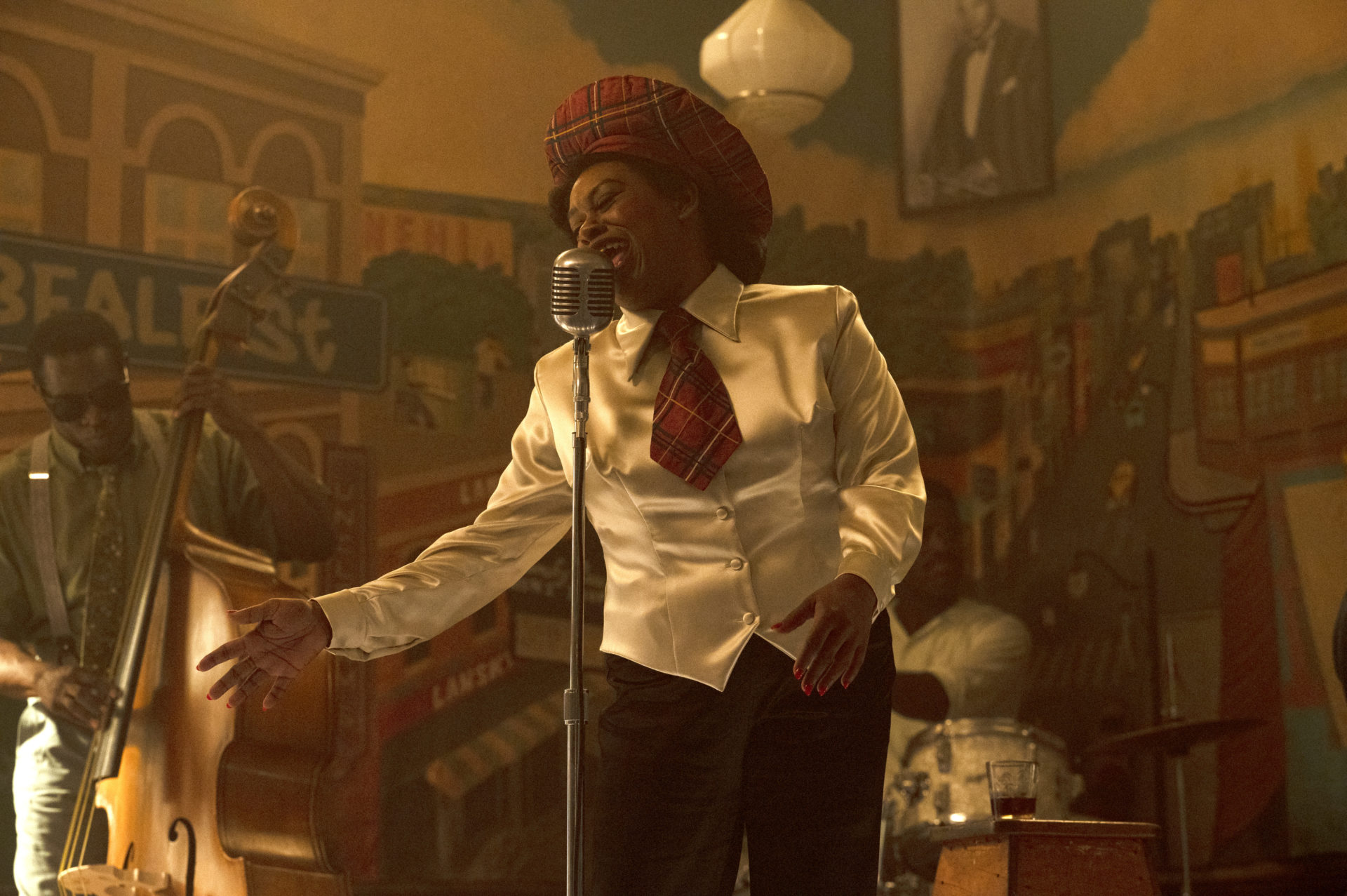
From Warner Bros. Pictures and visionary Oscar nominated director Baz Luhrmann comes to the silver screen a phenomenal biopic about the legendary Elvis Presley.
Elvis, not only explores the life and music of the iconic star, but it also unveils the villainous doings of his manager. The story about Elvis Aaron Presley (Austin Butler) is narrated through the love-hate relationship with the enigmatic Colonel Tom Parker (Tom Hanks). The motion picture delves into the complex dynamics between them over the course of two decades, from the time of their first encounter to Presley’s demise.
Luhrmann directed the film from a script he co-wrote with Sam Bromell, Craig Pearce and Jeremy Doner. The angle is not banal, since the story of the music star is intertwined with the Shakespearian plotting of his Faustian manager. But what creates fireworks is the mise-en-scène of the Australian director. Lurhmann’s visionary artistry works wonders as he blends together different styles: split screens transform into motion comics, and the entire narrative is a pacing tornado of hypnagogic images.

Elvis begins by introducing the mysterious figure of Colonel Tom Parker, who determined the fame of the King of Rock and Roll, but along the way clipped his wings for speculative reasons. Born in the Netherlands as Andreas Cornelis van Kuijk, he moved to the United States without a passport and enlisted in the United States Army, taking the name Tom Parker to disguise the fact he was an illegal immigrant. His dodgy past was unknown when he became Elvis Presley’s talent manager. Parker had the ability to charm his interlocutors, like a proper con man. The juggling act was his forte. In fact, his circus experience was channeled in the private club he created and named “The Snowmen’s League of America,” which was a pun of the real-life “Showmen’s League of America.” The letters was a fraternal organisation for carnival, circus and outdoor entertainers which he had joined after the war. This becomes a leitmotiv in Lurhmann’s film using the wordplay centred on the word “Snow” that in slang stands for the art of deceit, skills at which Parker excelled without the victim realising.
However the heart of Elvis Presley’s journey, was his family: his mother Gladys (Helen Thomson) who passed away too soon, his father Vernon (Richard Roxburgh), who became also his financial manager and his beloved wife Priscilla Presley (Olivia DeJonge), who bore him their daughter Lisa Marie.
The real daughter praised Austin Butler and claimed he should win the Oscar for the way he played her father. This young thespian has been acting since the age of fourteen, especially in television series such as Switched at Birth, The Carrie Diaries, The Shannara Chronicles, and Once Upon a Time in Hollywood. But the work he has done on Elvis will definitely mark a leap in his career. Elvis “The Pelvis” was famous for popularising his iconic hip action and rubber legs dance moves, that Butler emulates sublimely, as much as the pitch of his voice. His dedication has stuck with the young actor, who has exercised his vocal muscles to the point he still talks like Elvis. Butler’s interpretation is mystifying, you have the feeling of watching the real Elvis Presley.
The terrific work of the cast is glorified by Mandy Walker’s cinematography, the ginormous make-up department and Catherine Martin’s costume deign that reprised all the looks of the King of Rock and Roll, from his open-necked shirts to the ducktail’s haircut.

The American singer reached an unprecedented level of stardom against the backdrop of an evolving cultural landscape that marked the loss of innocence in his country. He was considered controversial for his erotic performances and for singing a black-influenced sound that was condemned by certain factions of the establishment. However his inspiration did come from African-American blues, gospel and Southern country, this is why the film is exemplary also in casting. Besides the articulate actors and actresses playing the producers, collaborators, friends and members of Presley’s entourage, Baz Lurhmann and his casting directors — Nikki Barrett and Denise Chamian — scouted the best performers to play the music icons that inspired Elvis Presley. They chose singer-songwriter Yola as Sister Rosetta Tharpe; Kelvin Harrison Jr. as B.B. King; the Alton Mason model as Little Richard; Austin Texan Gary Clark Jr., as Arthur Crudup; Adam Dunn as Bill Black and artist Shonka Dukureh as Willie Mae “Big Mama” Thornton.

Graceland is another great protagonist of the Presley family, the mansion estate in Memphis — managed by the famous maid Alberta Holman (Asabi Goodman) — as well as Elvis Presley’s legendary songs. The true class act is the editing done by Jonathan Redmond and Matt Villa, who amalgamates Elvis’ voice with Austin Butler’s performance and give an outrageously explosive cadence in unison with music supervisor Anton Monsted.
The ingenious trait in Elvis is the way Baz Luhrmann shows the capacity of music to express opposition to the conventional social, political, and economic principles of a society. This is what Presley’s music did, whether it celebrated Black culture (Hound Dog), whether it endorsed sexual liberation (Baby Let’s Play House), or whether it quoted the words of Civil Rights Movement leaders as a reaction to the assassination of Dr. Martin Luther King and US Senator Robert Kennedy (If I Can Dream). Music can express it all, even the sensation of spectators of Baz Lurhmann’s hair-raising film, who (to put it in the Presley’s words) “Can’t Help Falling In Love” with Elvis.
Final Grade: A+

